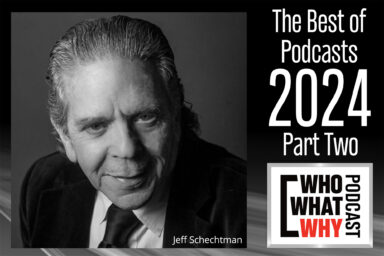The investigation of the killing of Haitian President Jovenel Moïse won’t find the real people behind the assassination, according to longtime Haiti scholar Amy Wilentz, who offers insightful analysis of Haiti’s past, present, and future.
Haiti is a vibrant country. It’s also a nation that regularly suffers the horrors of kidnappings, murders, and corruption, a country where gangs are more powerful than the police and military. Its citizens repeatedly have reached for democracy, only to see their efforts fail — often with the complicity of the United States — and their options for the future narrow.
This according to Amy Wilentz, our guest on this week’s WhoWhatWhy podcast. Wilentz, a professor and writer, is a longtime Haiti scholar who joins me to talk about the past, present, and future of Haiti.
The assassination of President Jovenel Moise last week is just the latest in the long history of Haiti’s misery and dependence, a process in which the United States has played a large part, since its invasion of Haiti in 1915.
Wilentz explains how all the years of the country’s dependence on the US and other international institutions discouraged Haiti from having the kind of governance and infrastructure that it so badly needed. It has also left people so disaffected that only 20 percent voted in Haiti’s last election. The one that reelected Moise.
Wilentz talks about how the country now appears to be on the verge of collapsing, and how COVID-19 is the overlay that makes things even worse. There are few masks, little oxygen, not many ventilators, and no vaccines.
Wilentz sheds light on the roles of the country’s army and police, the impact of the heavily armed gangs that roam the streets, the possibility of future leaders emerging, what Haiti’s implosion might represent to Latin America — and what the US should and should not do.



Click HERE to Download Mp3
Full Text Transcript:
(As a service to our readers, we provide transcripts with our podcasts. We try to ensure that these transcripts do not include errors. However, due to a constraint of resources, we are not always able to proofread them as closely as we would like and hope that you will excuse any errors that slipped through.)
Transcript Coming Soon…



